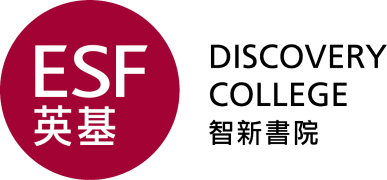Primary Years Programme
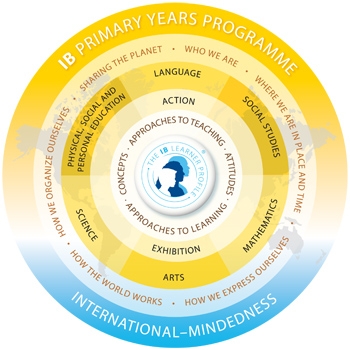
Curriculum Framework
At the centre of all IB programmes lies the Learner Profile – attributes we wish all IB students develop in order to make this world a better place.
Learning is designed under the umbrella of six transdisciplinary themes (four in Year 1) which are designed to have enduring value, regardless of geography or background of IB World Schools and students:-
- Who we are
- Where we are in place and time
- How we express ourselves
- How the world works
- How we organise ourselves
- Sharing the planet
Teachers design a comprehensive programme of inquiry through the transdisciplinary themes, providing opportunities for students to explore ‘big ideas’ of global significance through engaging, relevant, challenging and significant learning experiences.
The themes are supported by six subjects:-
- Language
- Mathematics
- Science
- Social studies
- Personal, social and physical education
- Arts
Together, the six themes and six subjects develop:-
- knowledge
- conceptual understandings
- approaches to learning – skills
- learner profile attributes
- action
With a focus on student-driven inquiry and conceptual understanding, as opposed to curricula that over-emphasise content and teacher-focused instruction, the PYP framework offers children a unique opportunity to be active participants in their learning. Throughout each unit, students are guided and encouraged to link their learning to real-life issues through deciding on a form of action they will take to make a difference in the world. As Year 6 students reach the end of their PYP journey, they undertake an extended, culminating project, The Exhibition, that requires them to synthesise their learning and present it to the community.
Programme of Inquiry
This promises to be another exciting year in primary school. Please download a copy of our Programme of Inquiry to find out what is in store for all the year levels.
DC PYP Programme of Inquiry 2024-25
Further Information
For further information about the PYP, please read the following IB documents:
The IB Primary Years Programme
Parent Pack – FAQs about the PYP
5 Ways You Could Support Your Child as a PYP Parent
Contact
Louise Mills, PYP Coordinator millsl3@dc.edu.hk
Middle Years Programme
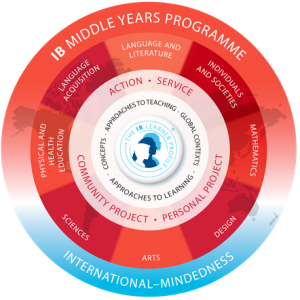
Curriculum framework
The IB MYP has eight subject groups on the outside of the octagonal curriculum model (Figure 1). All students are expected to study from each of these subject groups, and each group is of equal value. This helps ensure that all students receive a broad and balanced education to draw upon before making decisions about subject specialisation in Years 12 and 13.The eight subject groups are:
- Language and literature (formerly Languages A)
- Language acquisition (formerly Languages B)
- Individuals and societies (formerly Humanities)
- Physical and health education (formerly Physical Education
- Sciences
- Mathematics
- Design (formerly Technology)
- Arts Group (Visual Arts, Theatre and Music)
Through studying MYP subject knowledge, concepts and skills, students will also develop a broad suite of Approaches to Learning (ATL) skills.
Global Contexts
Global Contexts is the MYP’s framework for organising the curriculum’s content and skills with deep conceptual understanding. Conceptual understandings of taught content help students transfer ideas across topic areas and traditional subject boundaries. The Global Contexts build upon the knowledge and thinking skills developed through the PYP’s transdisciplinary themes.
Further information for parents and guardians
For specific questions about the MYP please contact Alison Yang (MYP Coordinator): alison.yang@dc.edu.hk
References
A basis for practice: Middle Years Programme, IBO (2002) Geneva
www.ibo.org – the IBO website
www.ibo.org/myp/ – Middle Years Programme at a glance
www.ibo.org/programmes/profile/ – IB learner profile
Diploma Programme
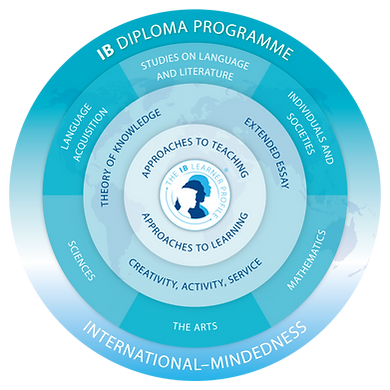
Curriculum Model
Full DP students take the core elements consisting of:
- Theory of Knowledge (ToK)
- Extended Essay (EE)
- Creativity, Action and Service (CAS)
Students also take one subject from each of the groups below, three at Higher Level (HL) and three at Standard Level (SL). Group 1: Studies in Language and Literature (Language A) Group 2: Language Acquisition (Language B or ab initio), or a second Language A Group 3: Individuals and Societies (Humanities) Group 4: Experimental Sciences Group 5: Mathematics Group 6: Arts (or a second Science, or a second Humanity, or a third language) It is possible to take two Arts subjects, but only if Environmental Systems and Societies is taken as the Group 3/4 subject. IB Diploma Courses students can take six subjects or less, and can do three or less at Higher Level. They can take Theory of Knowledge and do an Extended Essay if they wish. CAS is compulsory for all students at Discovery College.
Core Requirements
Theory of Knowledge (ToK)
In this interdisciplinary course, students explore the nature of knowledge across all disciplines. Critical thinking is encouraged by questioning assumptions and asking how certain we can be of different knowledge claims. The course promotes international mindedness by requiring an understanding of different cultural perspectives.
Extended Essay (EE)
Students have the opportunity to investigate a topic of individual interest. Through writing this 4,000 word essay, students develop the skills of independent research and academic writing that will prepare them very well for study at university level.
Creativity, Action and Service (CAS)
Students become involved in artistic pursuits, physical activity such as sport, and community service projects. This type of experiential learning fosters awareness and appreciation of life outside the academic arena. Students carry out and reflect on challenging activities that have real consequences, thus promoting personal responsibility.
Assessment
Students are assessed using a variety of methods, including examinations, essays, case studies, oral presentations, fieldwork, laboratory work, investigations and artistic performances. Some assessment tasks are marked externally by the IB, while others are internally assessed by teachers but externally moderated by the IB. All subjects are marked using the IB 1-7 scale, where 7 is the highest and 1 the lowest. Theory of Knowledge and the Extended Essay in combination are worth 3 points. The maximum score in the IB Diploma is therefore (6 subjects x 7 points) + 3 points = 45 points. The minimum possible score which can be awarded the IB Diploma is 24 points, though there are many possible failing conditions.
Learning Team Programme
In addition to the academic programme, students in Years 12 and 13 have one hour per week in Learning Teams which is devoted to CAS and Extended Essay preparation, work on Higher Education applications, and activities designed to develop life skills such as cooking, having a healthy lifestyle and making responsible decisions.
Further Information
For further information on the IB Diploma, see the IB website: www.ibo.org/diploma More information on the IB Diploma at Discovery College, see our Senior School Prospectus
Downloads
- Y12-13 Subject Selection 2024 – Slides
- Y12-13 Options Form 2022-24
- Senior School Prospectus
- DP General Regulations
- Rules for IB World Schools
- Assessment Calendar for the Class of 2024
- 2024 DC IBDP Results
- DP Assessment Procedures (Class of 2025)
- School Profile 2024-25
Contact
Will Hurtado, IB Diploma Programme (DP) Coordinator will.hurtado@dc.edu.hk
Career-Related Programme
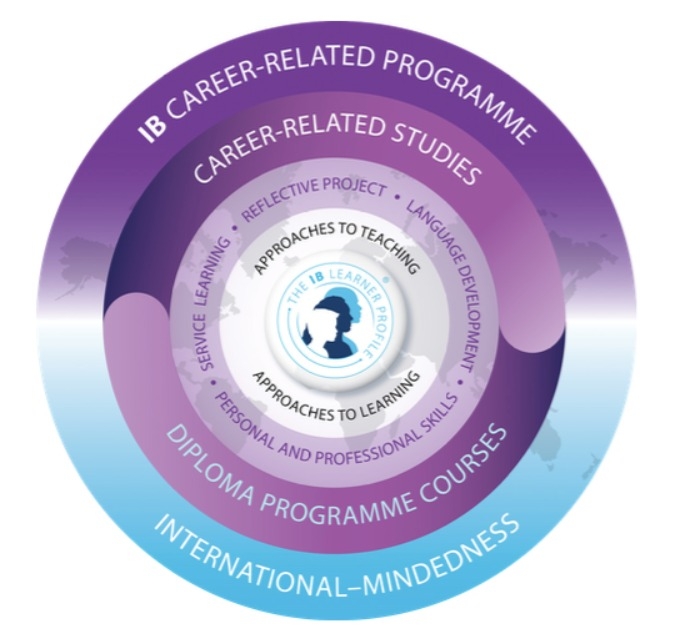
Curriculum Model
CP students take four core elements consisting of:
- Reflective Project (RP)
- Service Learning (SL)
- Language Development (LD)
- Personal and Professional Skills (PPS)
Students also take two to four DP subjects (see Diploma Programme page for details of subjects available) at Standard or Higher level and one career-related course.
Core Components
| Core Component | Description of course | Study mode |
| Personal and Professional Skills (PPS) course | Course that aims to support students in developing practical life and career-related skills.
5 main themes: 1. Personal development 2. Intercultural understanding 3. Effective communication 4. Thinking processes 5. Applied ethics |
2 blocks per cycle |
| Language Development course | Student must study a language that is NOT their best language. Some languages are available to be studied as one of the DP course. Any other language can be studied with an outside service provider or online. | 1 block per cycle to work on portfolio with the teacher’s guidance and 2 blocks per cycle to do independent study of language |
| Reflective Project | Student will have to produce a written essay about an ethical dilemma directly linked to the student’s career-related study.
They will also have to complete a Reflections on planning and progress form (RPPF). |
Independent learning + support from a supervisor |
| Service Learning | For Service Learning, students work with community members to undertake service activities that satisfy identified community needs. They will need to reflect about their learning and the impact of their actions. At least one Service learning experience should be related to the student’s chosen career path. | Independent learning + support from a supervisor |
Comparison
Comparison of CP and DP course elements
| CP Pathway | DP Pathway |
| 2-6 IBDP courses + Externally provided Career-related study (CRS) course | 6 IBDP Courses (3 HL) |
| Personal and Professional Skills (PPS) course | Theory of Knowledge course |
| Language Development course | Language is one of the 6 IBDP courses |
| Reflective Project | Extended Essay |
| Service Learning | CAS |
What does the CP offer in comparison to the DP?
| The CP can be characterised as… | The DP can be characterised as… |
|
Specialised – studies focus on areas relevant to a chosen career path |
Broad – studies encompass six different subject groups |
| Career-related – studies are framed around a career path and the way learning can be applied to this field of employment |
Academic – studies draw on knowledge and understanding from across a number of academic disciplines |
Career-related Study
What Career-related study specialisms are available to Discovery College students from August 2024?
Career-related studies occur through a partner provider. Partnerships with the following institutions have been/are being established for August 2024.
| Institution | Course(s) | Mode of Learning | Qualification |
|
International Culinary Institute (ICI) and Hotel and Tourism Institute (HTI) (Hong Kong) |
Culinary and Hospitality | Face-to-face and online | Certificate in Hotel and Culinary Arts (Level 3) |
|
Build Something Different Education (BSD Hong Kong) |
Digital skills (ConnectzWork) |
Face-to-face and online | Optional Industry qualifications |
| Savannah College of Art and Design (USA) |
Art and Design Joint Enrolment pre-college program: Foundation studies - Digital Media (STEM)
• Graphic Design (STEM)
Development (STEM)
• Photography
• Sequential Arts
• Business of Beauty and Fragrance
• Fashion Marketing and Management
• Social Strategy and Management (STEM)
• and other possible tracks |
Online | Academic Credits |
|
Embry-Riddle Aeronautical University (USA/Singapore) |
Dual Enrollment program: • Aeronautics Pathway • Aviation Maintenance Pathway • Engineering Pathway • Unmanned systems Pathway • Business Pathway • General Studies Pathway |
Asia Online campus | Academic Credits |
|
Sustainability Management School (Switzerland) |
Business & Sustainability | Online |
SUMAS CrS Certificate (Academic Credits) |
| World Academy of Sport (UK) | International Sport Management | Online | World Academy of Sport non award bearing certificate (Academic Credits) |
Qualifications
What qualifications do students receive at the end and how does this relate to university admissions?
- An important feature of the CP is that it is a framework of different learning experiences.
- Firstly, the CP is a qualification in its own right, similar to the DP. Students satisfying the passing conditions will emerge with the CP certificate.
- Secondly, completion of the CP will facilitate graduation from Discovery College. Universities, particularly in the USA, look for High School graduation as an indicator as part of their admissions process.
- Thirdly, the career-related study aspect of the CP will offer a qualification that they can use as part of university admissions. For instance, students taking their career-related study via HKAPA will complete a BTEC qualification. Students studying with SCAD and BSD will complete a series of foundation degree modules, which in some circumstances can be transferred as university credit to offset against future university studies.
- Fourthly, students will usually complete between two and four DP subjects but can select up to six DP subjects. These subjects can be the basis for admission to a university.
So the CP provides a number of ways in which students can gain access to a broad range of university courses in different countries around the world.
Assessment
Students are assessed using a variety of methods, including essays, case studies, oral presentations, fieldwork, investigations and artistic performances. Some assessment tasks are marked internally by teachers and some are assessed internally but externally moderated by the IB. Some assessments are conducted by the career-related provider.
Further information
For general information on the CP, see the IBO website: http://www.ibo.org/programmes/career-related-programme/.
More information on the IB Diploma at Discovery College, see our Senior School Prospectus.
Downloads
- Career-related Programme Assessment procedures 2026
- Year 12-13 Subject Options 2024-2026
- DP General Regulations
- DP Calendar Class of 2024
Contact
Raina Zhaparova, Career-related Programme (CP) Coordinator zhapar2@dc.edu.hk.
